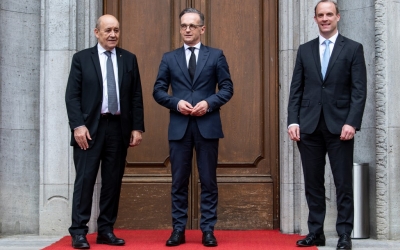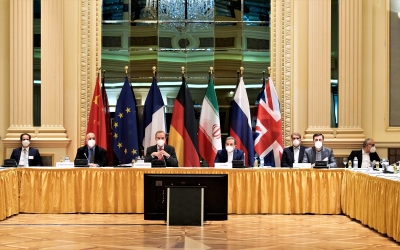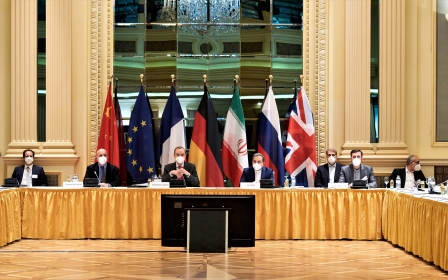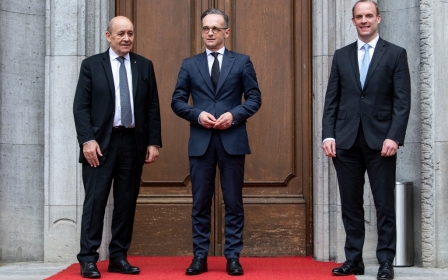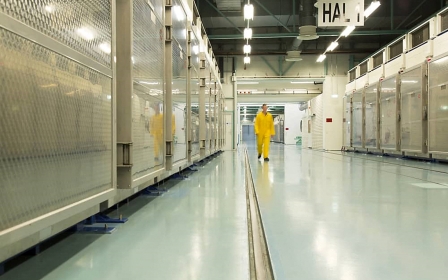Iranian press review: Saffron industry in death spiral amid US sanctions
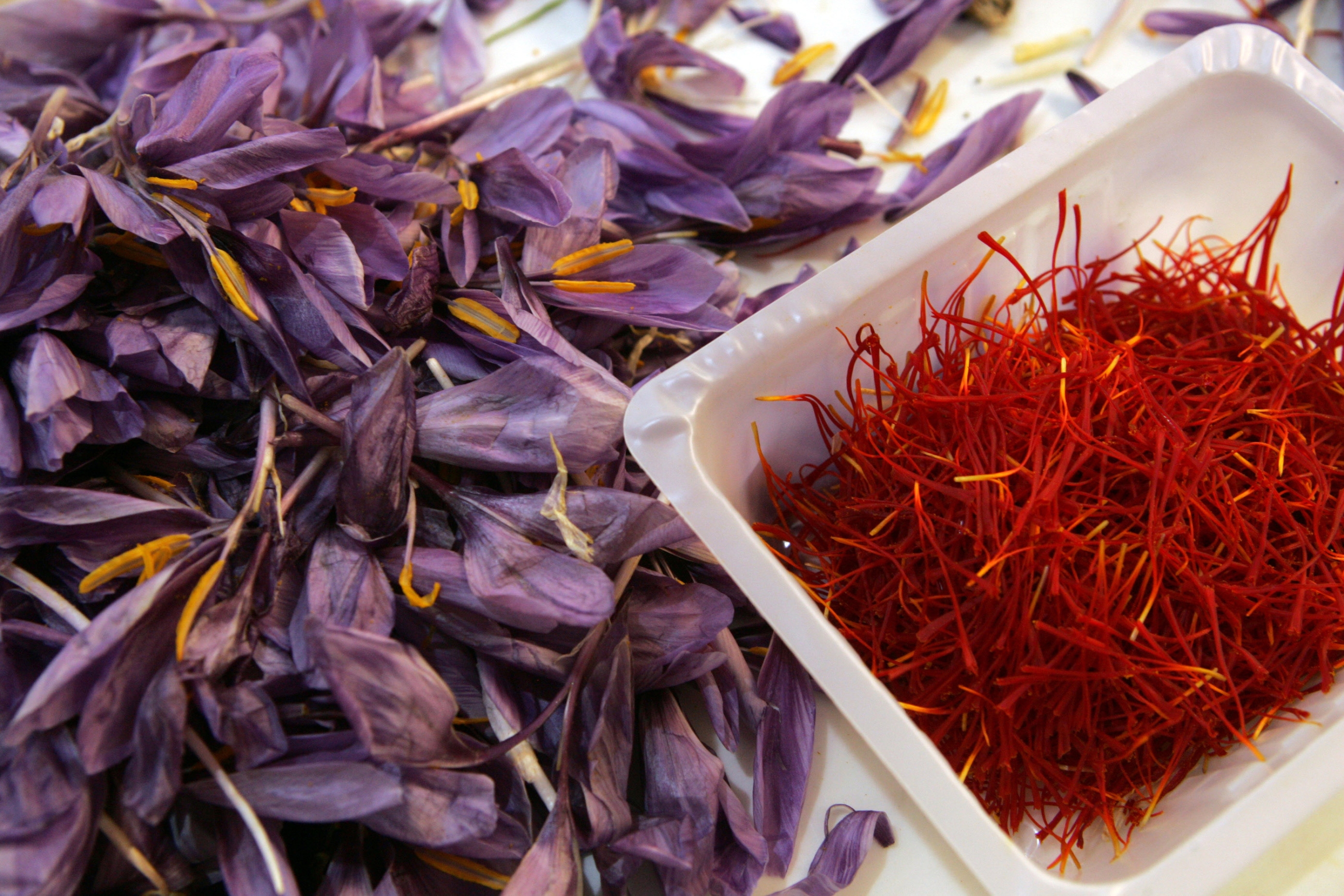
Farmers forced to feed saffron crocuses to livestock
Amid a continuing fall in the prices of saffron on the global market, some Iranian farmers have left their fields empty, or used the saffron crocus to feed their livestock, ISNA news agency reported from the eastern province of South Khorasan.
Iran is the world's biggest producer of saffron, known as the world's most expensive spice.
Due to the Covid-19 pandemic, the global saffron market has witnessed a sharp decline in consumption, which directly hits Iran's saffron farmers.
According to farmers in Iran's eastern regions, in recent years production costs have increased due to US sanctions on Iran's exports and banking system.
"Cultivating saffron is no longer profitable for farmers, and they only face losses," Hamid Mirzaei, a saffron producer in Amroui village, told ISNA.
"The labourers' payment and price of raw materials and fertilisers are increasing every year, but the price of our final product is declining," said Mirzaei.
"That's why this year, some farmers decided to use the saffron crocus as animals' food and stopped producing this once valuable product."
In Iran, all the steps of saffron production, from cultivation to harvest, are traditionally done by hand.
Iran's income from saffron comes mainly through bulk exports to Spain and Turkey, where the Iranian product is packed and rebranded before entering the global market.
Rouhani warned to avoid 'US trap' on nuclear deal
Iranian conservative policymakers and foreign policy experts have warned Rouhani over negotiating any step-by-step plan that would restrict Iran's nuclear programme in exchange for the US returning to the 2015 nuclear deal, saying such plans are "the US' new trap".
European diplomats have been shuttling between Iranian and US officials in Vienna this week in the most serious effort so far to revive the nuclear deal, raising speculation over direct negotiation between the two sides.
However, Iranian officials have firmly rejected "any direct or indirect" talks with the US before the removal of all US sanctions related to Iran's nuclear programme.
US President Joe Biden's administration had initially urged Iran to fully comply with its commitment to the nuclear deal, but in recent weeks proposed a new plan based on the gradual and mutual return of the two countries to the pact.
As the outgoing Rouhani government works on a solution to end the current impasse, Iranian conservatives have said they do not trust US proposals.
In an interview with the Islamic Revolutionary Guard Corps (IRGC)-affiliated news agency Tasnim, Iranian academic Mohammad Jamshidi suggested that Iran would be the loser of any US-Iran talks unless Washington first removed its sanctions.
"If we enter indirect [or direct] talks with the US, we would have two choices: to accept an agreement at the end, or to reject their proposal," Jamshidi was quoted by Tasnim as saying.
"Either way, we would be the loser because the US would not remove all sanctions even if we accept their proposal.
"And if we reject the proposal, the international community would condemn Iran for not being willing to negotiate."
Ayatollah Abbas Ka'bi Nasab, a conservative cleric and a member of the IRGC, has warned that the step-by-step plan is a trap designed by the new administration in the White House.
"We should not repeat the failed experiences [of negotiations] we have had with the Democrats in the Obama era and the Republicans in the Trump era," Ka'bi Nasab was quoted as saying by the Mehr news agency.
"[In those negotiations] the Americans' commitments were only on paper, while ours were actual," he added.
Tehran reveals extra data on enriched uranium stockpile
Iran has increased its stockpile of 20 percent enriched uranium to 50kg, Ali Akbar Salehi, the head of Iran's Atomic Energy Organisation, revealed in an interview on Saturday.
"According to the parliament law, we have to produce 120kg of 20 percent enriched uranium in a year, and so far, we have reached 50kg," Salehi said, referring to a law passed by Iran's parliament after the assassination of the country's top nuclear scientist Mohsen Fakhrizadeh in November.
'Our production of yellowcake before the JCPOA was four to five tonnes, but now it has reached an average of 35 tonnes'
- Ali Akbar Salehi, head of Iran's Atomic Energy Organisation
Last November, the conservative-controlled parliament obliged President Hassan Rouhani's centrist government to reduce its compliance with the 2015 nuclear deal and restrict the International Atomic Energy Agency's access to Iran's nuclear facilities.
In the interview, widely covered by local media, Salehi said that he fully supported the parliament's ruling, and to abide by the law his organisation would, within a year, make use of 1,000 domestically developed IR-6 centrifuges to enrich uranium.
Under the JCPOA, a 2015 nuclear deal signed with global powers, Iran was permitted to only use IR-1 centrifuges and enrich uranium up to 3.67 percent.
However, following Washington's unilateral withdrawal from the pact in 2018, Iran has gradually rolled back its commitments within the deal.
In another move to rapidly develop its nuclear programme, Salehi said Tehran had also increased its yellowcake uranium production, also known as uranium oxide.
"Our production of yellowcake before the JCPOA was four to five tonnes, but now it has reached an average of 35 tonnes," he said.
* Iranian press review is a digest of reports that are not independently verified as accurate by Middle East Eye.
Middle East Eye delivers independent and unrivalled coverage and analysis of the Middle East, North Africa and beyond. To learn more about republishing this content and the associated fees, please fill out this form. More about MEE can be found here.


